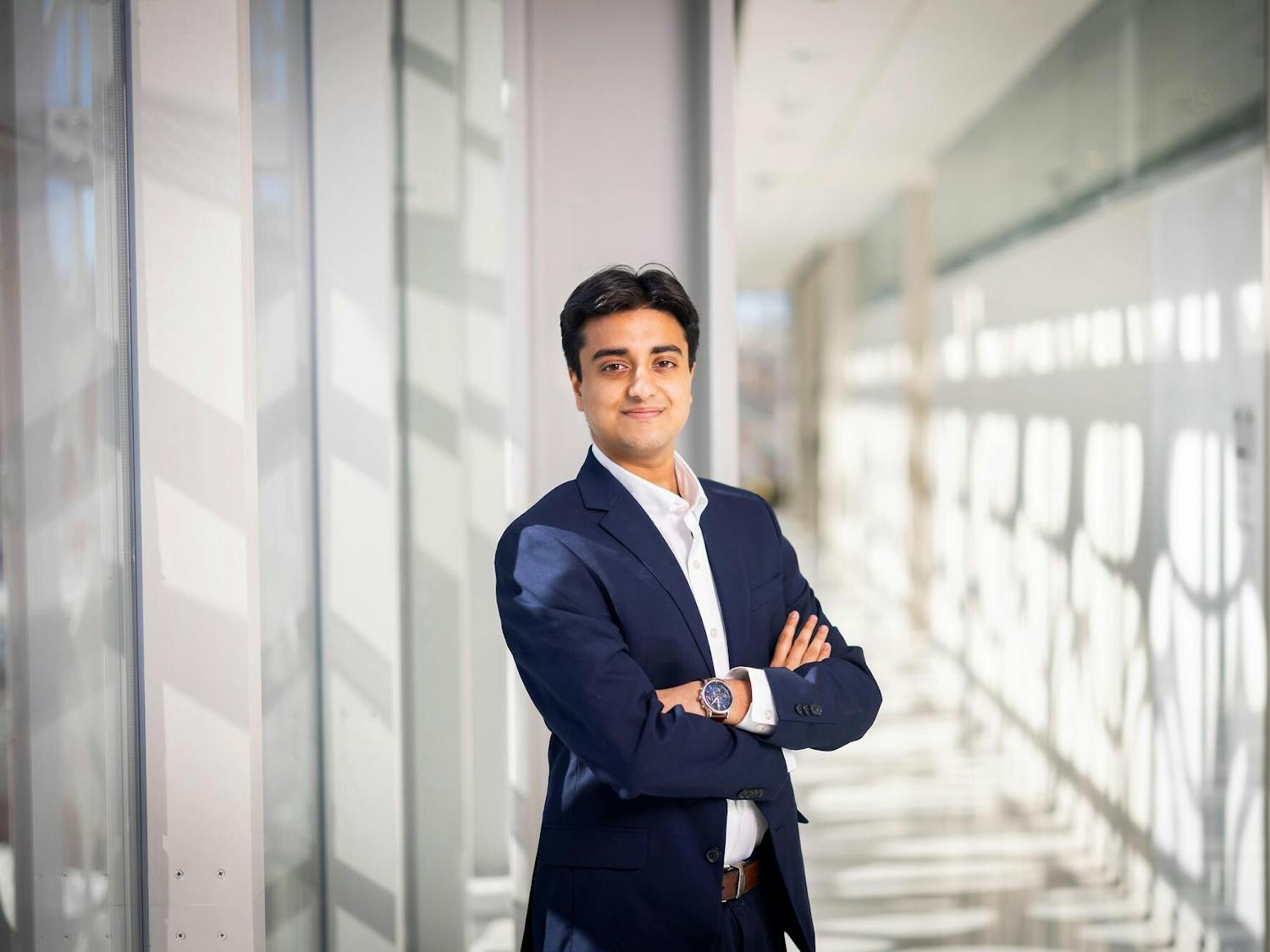The newly-founded Penn Law Civil Discourse Society hosted a discussion on free speech with Harvard Law School professor Cass Sunstein on Thursday.
Sunstein — a legal scholar and former administrator of the White House Office of Information and Regulatory Affairs — spoke on the nuances of determining when regulating free speech is legally justified. The audience of undergraduates, law students, law professors, and alumni posed questions to him after his talk.
William B. and Mary Barb Johnson professorship of law and economics David Abrams and second-year Penn Carey Law student Zack Ben-Ezra formed the Civil Discourse Society at the end of last semester. The group aims to promote discourse on campus following recent controversy at Penn and colleges across the country.
Ben-Ezra told The Daily Pennsylvanian that over 70 students and faculty signed up to attend the event.
“In my opinion, people have stopped engaging in important discussions,” Ben-Ezra said at the opening of the event. “The fear of ‘saying the wrong thing’ has led us to stop speaking up, while the echo chambers of our like-minded friends and endless social media algorithms have given us a false sense of confidence in the surety of our opinions.”
He added that, given the “privilege of be[ing] a part of one of the best academic institutions and law schools in the world,” Penn community members have a responsibility to expose themselves to new ideas, even those with which they may disagree, to pursue “truth, righteousness, and justice.”
During his talk, Sunstein presented six general points of information on the topic of free speech at public universities. He then walked the audience through applying the points to a series of scenarios in order to judge whether regulating free speech is legally justified or not.
He noted that — under the First Amendment — public universities may regulate speech that is intended and likely to produce imminent and lawless action. Another point focused on the distinction between three different kinds of restrictions on speech — content-based, viewpoint-based, and content-neutral.
[RELATED]
Magill's free speech fight at Penn
Penn law students protest outside white nationalist's guest lecture at class taught by Amy Wax
“The fourth general point, and the most interesting ... is that educational institutions as such have authorities that other public institutions lack,” Sunstein said. “That's to say that Penn, Michigan, and Stanford, even if they are seeking to comply with the First Amendment, will be able to regulate speech if the regulation is essential to their educational mission."
The sample scenarios ranged from students threatening harm to another student based on race — which Sunstein stated would justify punishment — to a protest on campus, in which case, Sunstein said that the regulation of speech would not be justified. Sunstein also discussed more complex situations, such as an example of students occupying a common room in protest of a university’s actions without blocking the exit or using all the seats.
Following these examples, the audience presented questions to Sunstein — prompting discussions on potential conflicts between Title VI of the Civil Rights Act of 1964 and the First Amendment of the United States Constitution, the appropriate cutoff of violent threats for regulating speech, and why traditionally "bad" viewpoints should not always be restricted.
Ben-Ezra said that the Civil Discourse Society hopes to continue inviting high-quality speakers who can contribute to campus discussions.
“The Penn campus is both very individually and politically diverse, and we're trying to get a crowd that reflects that,” Ben-Ezra said. “We welcome all people across the political spectrum and all different ideologies.”
After the event, Sunstein spoke to the DP about the importance of holding accessible conversations on college campuses.
“If the issue involves free speech or freedom of religion or due process of law or democracy, then people exchanging different views, arguing, and learning from each other is an essential path forward,” he said.









